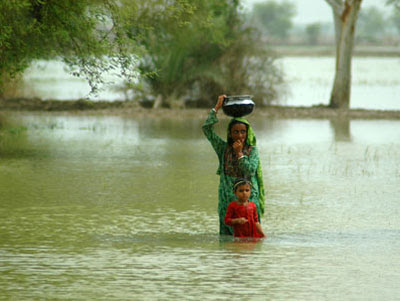environment
Rehabilitating utopia and saving the future
By Ben Courtice
August 29, 2010 -- Blind Carbon Copy [BCC] -- Socialism was conceived as a creative and idealistic movement, but lost its way for most of the 20th century. Recapturing this imaginative energy can help find solutions to such huge threats as climate change. This article started as a short impromptu speech I gave to launch the third edition of the Australian Socialist Alliance's Climate Charter.
* * *
Socialism used to be a rallying point for idealists, utopians, dreamers and those who were simply hopeful. It carried an almost millenarian promise of redemption and salvation. More importantly, it allowed its advocates to exercise their imagination. If socialism was to democratically realise the wishes of the common working people, why should they be restrained in their wishes?
Venezuela: Land reform, food sovereignty and agroecology

By Alan Broughton
Britain: What now for the Green Party?

By Peter Shield
August 17, 2010 -- The Green Party of England and Wales has made some major breakthroughs over the couple of years, the election of Caroline Lucas to the British parliament was one of the few bright points on an otherwise dismal election night on May 6, 2010. At a local level the Green Party now has just over 120 councillors and the two members of the European Parliament (MEPs). The problem however is that the election showed up how patchy and locally concentrated its support base actually is. With the Autumn party conference approaching what are challenges facing the Green Party.
Pakistan flood catastrophe: West gives `billions for killing, little for life'

By John Passant
August 15, 2010 -- The floods in Pakistan have threatened the lives and safety of more than 20 million people. Millions have lost everything. Now hunger and disease haunt the country. Dysentery and cholera are gaining a foothold as people without homes starve and kids without Western help die.
The US gives the Pakistan government US$1 billion a year to fight "militants". It has increased its flood aid contribution from $10 million to $25 million. That’s right. Its aid figures is millions, not billions.
That’s because for US imperialism cowering the world before its might is much more important than providing aid to people affected by the floods.
Is Africa still being looted? World Bank dodges its own research

By Patrick Bond
August 15, 2010 – The continent’s own elites, together with the West and now China, are still making Africans progressively poorer, thanks to the extraction of raw materials. Reinvestment is negligible and the prices, royalties and taxes paid are inadequate to compensate the wasting away of Africa’s natural wealth. Anti-extraction campaigns by (un)civil society are the only hope for a reversal of these neocolonial relations.
Though it’s easy to prove, even using the World Bank’s main study of natural resource economics, the looting allegation is controversial. When I made it during a Canadian Broadcasting Corporation (CBC) interview last week, the World Bank’s chief economist for Africa Shanta Devarajan, immediately contradicted me, claiming (twice) that I am not in command of the “facts”.
Karl Polanyi provides `a vital intellectual resource' for ecosocialists
To allow the market mechanism to be sole director of the fate of human beings and their natural environment, indeed, even of the amount and use of purchasing power, would result in the demolition of society. For the alleged commodity "labor power" cannot be shoved about, used indiscriminately, or even left unused, without affecting also the human individual who happens to be the bearer of this peculiar commodity. In disposing of a man's labor power the system would, incidentally, dispose of the physical, psychological, and moral entity "man" attached to that tag. Robbed of the protective covering of cultural institutions, human beings would perish from the effects of social exposure; they would die as the victims of acute social dislocation through vice, perversion, crime, and starvation. Nature would be reduced to its elements, neighborhoods and landscapes defiled, rivers polluted, military safety jeopardized, the power to produce food and raw materials destroyed -- from Karl Polanyi's The Great Transformation (1944)
iPhone 4: Capitalism, inbuilt obsolescence and `blood' phones

By Stuart Munckton
August 1, 2010 -- Green Left Weekly -- “Yes, the notable features with iPhone 4 — both the device and the iOS4 — are mostly tweaks”, said a June 22 review on the popular site BoingBoing.net. “But what tweaks they are.”
In the interests of full disclosure, I’ll admit I have no idea what “iOS4” means. But my eye was caught by the admission that the iPhone 4, launched in Australia on July 29, was almost the same as the iPhone 3.
Corporations use “inbuilt obsolescence” as part of artificially creating markets. This means the products they sell are deliberately made to break down — so we have to keep buying more.
In the case of products tied to ongoing innovations, the trick has a variation. Makers will hold back innovations in order to release, a short while later, a new version of the same product with a few extra features.
Speech delivered by Ambassador Pablo Solón of the Plurinational State of Bolivia before the General Assembly of the United Nations on July 28, 2010.
[The historic resolution passed with 122 countries voting for it and 41 abstaining, but with no negative votes. See below for the 41 governments that abstained.]
* * *
Allow me to begin the presentation of this resolution by recalling that human beings are essentially water. Around two-thirds of our organism is comprised of water. Some 75% of our brain is made up of water, and water is the principal vehicle for the electrochemical transmissions of our body.
Our blood flows like a network of rivers in our body. Blood helps transport nutrients and energy to our organism. Water also carries from our cells waste products for excretion. Water helps to regulate the temperature of our body.
Market greed or a planned economy for human need?
By Dave Holmes
[This is the text of a talk given as part of Melbourne Socialist Alliance’s Socialist Ideas Seminar series on July 28, 2010.]
`Overpopulation' — a political weapon for conservatives

By Simon Butler
July 24, 2010 -- Green Left Weekly -- Forget about the climate science and the record high temperatures. Australia's Prime Minister Julia Gillard has decided she doesn’t need a serious climate change policy to win the August 21 federal election. In its place, she kicked off her election campaign on July 18 with a “sustainable Australia” policy. It promised a future of low population growth, which “preserves our quality of life and respects our environment”.
Opposition leader and climate denier Tony Abbott was quick to say he fully agreed with this vision, but was even more committed to it than Gillard.
From a conservative point of view it makes sense to raise the spectre of overpopulation in this election campaign. Population control is the mother of all political diversion tactics. Population levels explain nothing about social problems. But they can be scapegoated for just about everything, from traffic jams and home prices to grocery bills and climate change.


